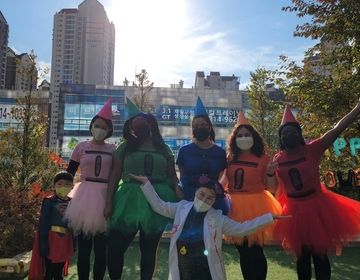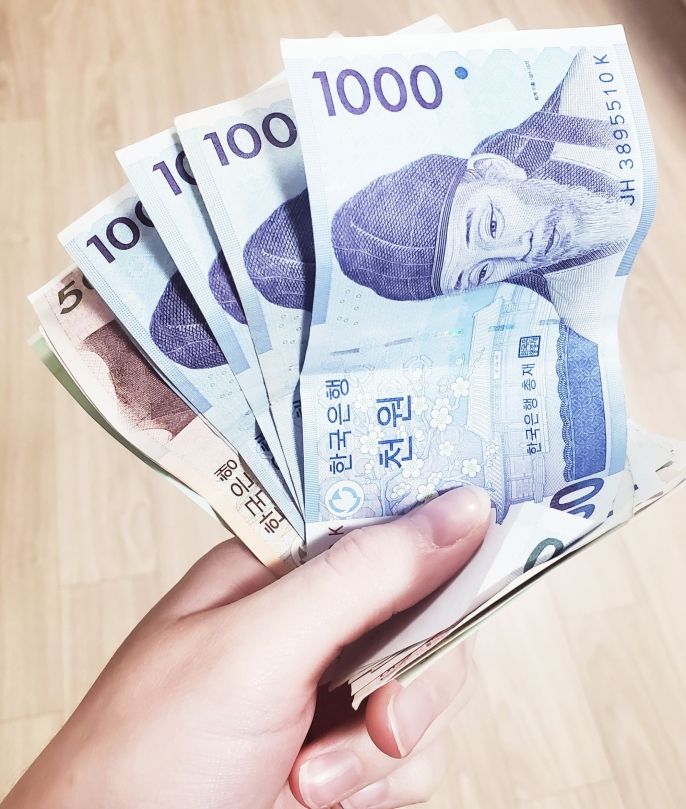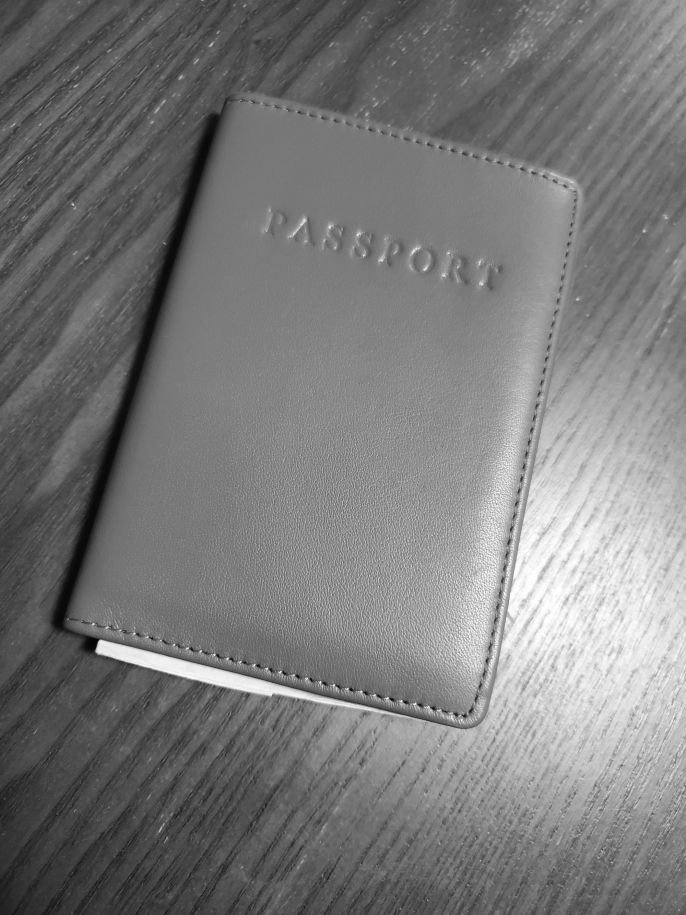Visas, Passports, and Money, Oh My! What you need to know before leaving for South Korea
I'm assuming you've stumbled upon this page because you are planning on (or thinking about) moving to South Korea. If you're set with a contract and just crossing the t's and dotting the i's, congrats! If you're still in the process of hiring and interviewing, or simply just browsing, this will be helpful for you down the road when you're ready for it.
In this post I am going to give you some helpful hints from my personal experiences about the financial and visa processes before you leave, and hopefully will leave you feeling like you can tackle these procedures that are admittedly stressful (but so worth it)!
What to expect from the Visa process
Depending on whether or not you are using a recruiting company or flying solo, you should have a person to contact to help walk you through the whole E-2 visa process for becoming an English Teacher in Korea. However, the first thing you should do is find out which Korean Consulate is the closest to you. In the United States, there are 12 Consulate offices, as well as one in Guam. Certain Consulates are in charge of their regions and if you try to contact the wrong one it will most likely cause issues and delays with your visa. You can click here to find out which Consulate you should apply through.
Each Consulate requires the same basic documents, but some offices have additional requirements on what needs to be sent. For example, the Korean Consulate in Atlanta required me to send my actual passport to staple the paper visa in while some other regions only require a photocopy. Be sure to check with your regions’ specific instructions.
When I applied for my visa, I first had to apply for a visa issuance number through my hagwon in South Korea and then apply for my actual visa once I received my issuance number. Check with your coordinator or recruiting team, but it will most likely be:
- multiple signed copies of your contract
- a completed Visa Issuance Application form
- 4 passport-style photos (order at least 8 of these when you have them done, you’ll need them later for the Visa application and at least 1 or 2 more in South Korea for your ARC application)
- 2 copies of your most updated resumé
- Original notarized Bachelor’s degree with Apostille
- Original FBI background check Apostille
You’ll FedEx all of these documents to your school’s address in South Korea, just take it to anywhere that has a FedEx drop (local FedEx, certain grocery stores, etc.). Be sure to get a tracking number for your package to make sure you know when it arrives.
So, You’ve Gotten Your Issuance Number, Now What?
2-3 weeks later and you’ve gotten your visa issuance number, so now you’re ready to apply. You need to get on top of this QUICKLY. I was walking up to an airport to fly to Portland for the weekend when I received my email that I had a visa issuance number. I ended up sending all of my paperwork from Portland to Atlanta because it would travel there quicker than I would getting back home to Florida.
Your visa application will consist of an envelope containing:
- Visa Application
- 1-2 passport style photos
- Money or cash (in an envelope) for $45
- A copy of your passport information page
- Consent to Quarantine form
- E-2 Health Statement form
- Signed copy of your school’s contract
You might also have to send your original passport with a self-stamped and self-addressed envelope so that they can mail you your passport. Be sure to get a tracking number for each of these packages. Again, double (or triple) check with your Consulate about what information needs to be in the envelope.
The Waiting Game
The most difficult part will come after this: the waiting game. Be sure to give the Consulate an email and a call letting them know you’ve sent your information and asking an ETA on how long the application can take. This won’t speed the process up, per se, but it will a) give you peace of mind that you’ve done/ are doing everything you can in your control and b) will let the Consulate know that you are monitoring your application’s progress.
Do not be shocked if you don’t get a response on the phone. They are busy and depending on the time of year, as well as the world getting more lax with travel, they are being flooded with appointments and calls. Do keep checking in (every couple of days if need be) until you get a response. There’s nothing you can do but simply wait for the process to work itself out.
In the meantime, you can focus on things like comparing flights, learning Hangul, watching some K-dramas, and tying up loose ends (financially speaking).
It’s All About the Money, Honey
Before you leave, you’ll have to make sure all of your affairs are in order. For every person, this is a little different. For example, I was fortunate enough to transfer my car insurance to my parents’ insurance and they absorbed my payments in return for driving my car. Everyone will have some different matters to settle, but here’s some preparation that almost everyone needs to be sure of.
1. Add someone to your bank accounts OR a delegate beneficiary
Better be safe than sorry and make sure someone back home you can trust can take care of any banking if you need it.
2. Clear any balances (if possible) with any medical institutions, gyms, etc.
Call your dentist, your doctors, the hospital, or anyone at all that you may owe money to and clear the balance. You won’t be getting their mail and probably not their phone calls for at least a year. Try to leave with the least amount of fiscal leashes as possible.
3. Order Korean Won from your bank (but most likely not a credit union)
Don’t break the bank at the airport! Check with your local bank about money exchange, instead. Airports charge much more than most banks to exchange currency, but many banks will do it for a fraction of the cost. For example, TD charges a mere $7.50 for any lump sum of currency exchange. It could be an order of $10 in KRW or $300 in KRW, each order will still only have an additional charge of $7.50. Be sure to do this at least a week in advance, as some banks take 5-7 business days for the order to arrive (TD is only 2-3 business days, if you were wondering).
4. Call your banks and credit card companies to notify them about your departure
Some banks and credit card companies will allow you to do this online or through an app, but some will only verify your trip through their 1-800 number. Either way, the last thing you want is to have your card frozen because of suspicious activity so best to let them know well ahead of time.
Final Do’s and Don'ts
Do:
- Ask questions!
Ask them of recruiters, school directors, bank tellers, post office workers, anyone! If you have a question or something seems off in any way, ask! I had to wait an additional 4 days for my passport to arrive because it was looked over (stuck) on a truck in Miami and kept going back and forth to the same two offices for days. I went into my local post office and had it in my hands within 2 days.
- Learn Hangul
If you haven’t already, I would heavily advise you to learn how to read the language. I am still just learning how to speak Korean and can say a few basic phrases, but it helped immensely being able to read some of the signs. If you’re looking for some apps or resources to learn Korean, I would recommend EggBun, Talk To Me In Korean, Droplets, and MemRise. It will also help to have Papago (Korean version of Google Translate) and Naver Dictionary downloaded, as well. Reading Hangul will help with signs that are Americanized but written in Korean (taxi, bus, coffee, etc.).
- Have an open mind and be patient
Be thinking of your overall mindset when preparing to come/ when you finally arrive. Lots of little things will happen that will feel like setbacks, but you have to be optimistic and positive each step of the way. If there is something you can do about a situation that you can (and should) change, then do what you can to make it happen. If not, it won’t change regardless. Focus your energy and willpower on what you can control and try to simply stay the course as the process pans out.
Don’t:
- Stress out!
I know, this sounds easier said than done, but it’s true! Plan out when you’re going to handle each of the tasks above, and set little “praise parties” or celebrations for yourself when you cross a task off the list. After all, it’s going to be so worth it once you're in Korea! For now, celebrate each win, no matter how small.
- Order too much money
350,000 KRW (about $300) is the most I would recommend bringing with you in cash. Some places won’t accept certain foreign card companies like Discover, but most will accept MasterCard, Visa, etc. You’ll only need cash in instances like purchasing a T-money card and adding funds to it, and maybe food delivery. But, you can survive in Korea just fine without using cash like in the US.
Remember:
At the end of the day, your school wants you to join their staff and work for them, so they and/or your recruiting team will be more than willing to help you if you have questions or concerns through these processes.
Though there will be some stressful times arranging for the visa and the harrowing wait to follow, there will also be immense excitement when everything falls into place and you get on that plane.
Hopefully, wherever you are in this process, it'll put your mind a little more at ease and help you have an idea of how to navigate this part of your journey.
Related Posts

A Comprehensive Budgeting Guide for English Teachers in South Korea
A Comprehensive Budgeting Guide for English Teachers in South Korea Teaching English in South Korea has become an increasingly popular option for young people looking to travel and get some... keep reading

Professionalism in South Korea as a Native English Teacher
As a native English teacher in South Korea, understanding Korean culture and professionalism is crucial for both personal success and the broader impact you can have on your students. South... keep reading

How to Go to the Doctor in South Korea as an English Teacher: A Guide to Healthcare and Health Insurance
As an English teacher in South Korea, maintaining good health is essential while living abroad. Navigating the healthcare system can seem daunting and stressful at first, especially if you can’t... keep reading


